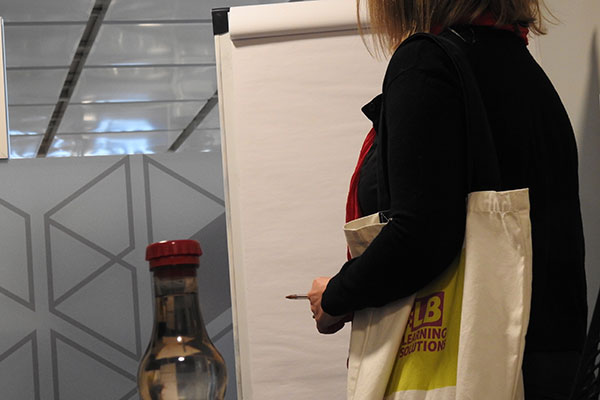What does Learning Professional mean? Why don’t you just call yourself a trainer?
Recently a colleague asked me these questions. They thought I was describing myself as a learning professional just to sound fancy. So the questions prompted a great discussion. Here are some points you may also have discussed recently with your colleagues. There is nothing new here, just a bit of thinking out loud.
Training is “pushing” and learning is “pulling”.
Modern learning environments are no longer places where you turn up and get told what to do. We used to call that “training”. You know what I’m talking about don’t you? An example I remember well was being in a team where redundancy packages were about to be offered and we were all sent to “resilience” training. At the lecture style “resilience” training we were shown flow charts and dot point summaries and we answered a few questions as a group. What was sorely missing from the training were the links to reality. There was no acknowledgement of why we were there. We were not given an opportunity to apply any of the methods or processes in a practical way. The trainer approached everything from a position of authority and assumed we knew nothing. And so it was with all the information being “pushed” at us we rejected and ignored the training as tokenistic and a waste of our time.
By contrast, in a well designed “pulling” environment learners share what they already know, seek more information, make connections for themselves and build on existing knowledge.
“I have a certificate or a badge so why don’t I know what to do?”
We know that simply completing a course or “doing training” does not equate to understanding, output or application of what we have learned. Learning professionals design experiences with tangible performance results and outputs.
When we apply what we learn we remember it
Conventional “training” involves a one-off experience usually followed by a one-off assessment at the end. Learning professionals approach their designs with application in mind. Often this involves providing a safe environment to practise and apply skills or behaviours in, then following up with real world opportunities to put those newly honed skills and behaviours into practice.
Spoon feeding creates passive, dependent learners
When adult learners bring their existing knowledge to any task they are empowered to build on that knowledge and often inspired to continue to actively seek more. This is in direct contrast to “training” people with swags of information without giving them an opportunity to process the information for themselves. A great example of this is the use of YouTube. At home when we need to learn how to perform a new task we often search for it on YouTube and upskill ourselves. We are motivated to learn and we learn fast. On the other hand, when we attend conventional workplace “training” we are often given all the information we need to perform a task such as a handbook, guidelines, legislation, online support materials, videos and advice, and yet the amount of learning that takes place is often next to nothing. We can easily become reliant on information sources rather than our own means and forget what we are there to do. Learning professionals harness our motivation to learn and create user-centred design options. They don’t overload us with unnecessary “stuff” and leave us to sift through it without a purpose.
One size doesn’t fit all
This is my favourite. How many times have you been hassled to buy off the shelf “training” in the form of one-off workshops or compliance eLearnings for your organisation? It’s an easy option. But off the shelf solutions rarely, if ever, meet the mark for learners because the materials are not designed with them in mind. Learners have a low tolerance for things they have no connection to and will quickly reject them. They will also tire quickly from learning always based on one tool or one method as a means for addressing every problem. How much do we all hate compulsory compliance eLearnings that come up every 6-12 months?
These are my musings on the trainer vs learning professional topic. Please contribute your thoughts.
